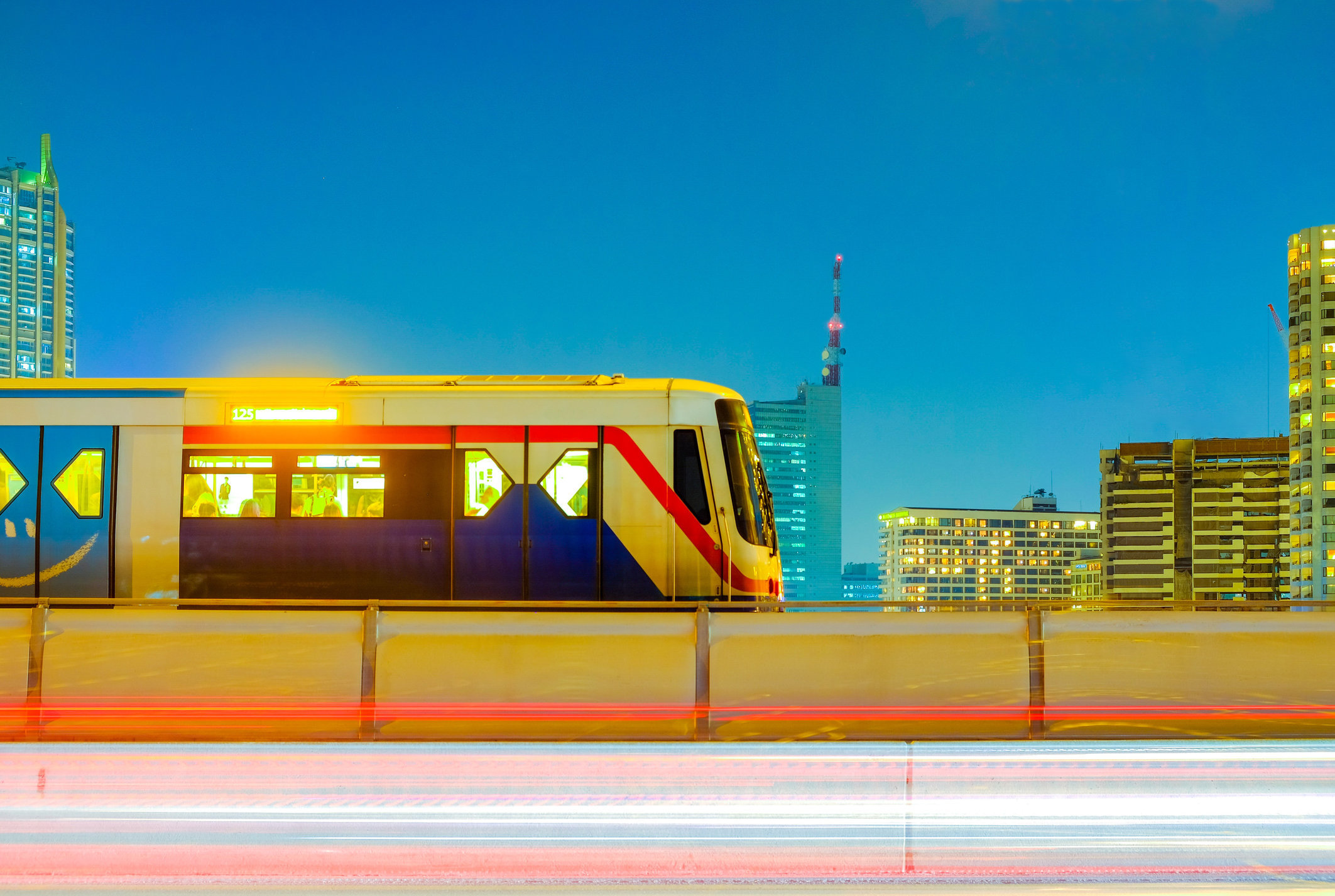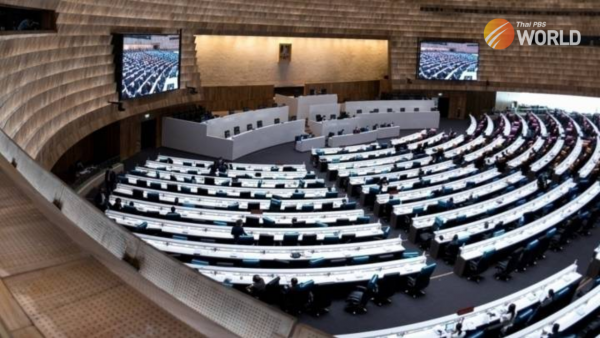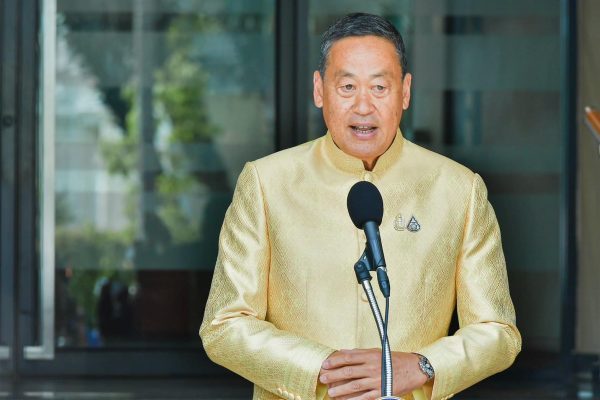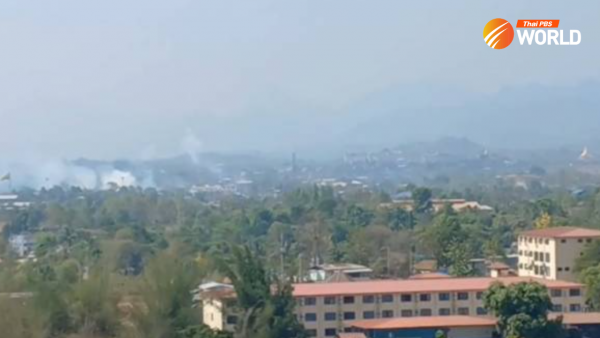Can new governor Chadchart bring BTS Skytrain fares down to earth?

Many commuters voted for Chadchart Sittipunt in May’s Bangkok governor election in the hope he would deliver on his vow to cut BTS Skytrain fares sharply. But that is not what the newly elected Chadchart will deliver in the foreseeable future.
“When I said a BTS ride should only cost between 25 and 30 baht, I meant for rides that cover between eight and 11 stations,” Chadchart said. “I don’t think this fare can cover all stations in the system.”
Currently, the maximum fare for a single ride on the Skytrain is 59 baht. Elderly passengers can also claim discounts.
BTS is an important transport system for commuters not just in Bangkok but also in the neighboring provinces of Samut Prakan and Pathum Thani. It currently covers 59 stations spanning all three provinces and runs a total distance of 67.45 kilometers.
Chadchart’s plan
During his election campaign, Chadchart promised to revise contracts with Skytrain operator Bangkok Mass Transit System Plc (BTSC). He also mentioned that the maximum fare would be between 25 and 30 baht.
Yet, after winning the gubernatorial election by a landslide, Chadchart said his maximum-fare pledge was based on the assumption that passengers are unlikely to ride the entire distance of the system.
“That fare was initially planned for an eight-station ride. But after looking into the details, it may be possible to cover as many as 11 stations with that figure,” the new governor said.
His city administration now aims to offer a maximum fare of 59 baht – which is based on a proposal by the Thailand Research Development Institute (TDRI) – possibly up till 2029.
BTSC, which invested in the construction of the original BTS network, holds the concession till that year. This network covers the 17-km Sukhumvit Line from Onnut to Mo Chit and the 6.5-km Silom Line from National Stadium to Saphan Taksin. The routes that extend beyond that original network will be operated by BTSC until 2042, according to the current contract.
“The 59-baht maximum fare is our short-term solution,” Chadchart said. He quickly added that he hoped to reduce the fare if cutting it becomes financially feasible.
Any extra charge?
Commuters expressed frustration at the news that Chadchart also plans to allow the BTS to start charging passengers traveling on its new extension routes from next month, ending years of free travel on the routes.
Chadchart said the newest extensions – one stretching from Bangkok’s Ha Yaek Lat Phrao station to Khu Khot station in Pathum Thani and the other from Bearing station in Bangkok’s suburbs to Samut Prakan’s Kheha station – would need to collect fares, otherwise the public would continue to shoulder the expenses.
“We don’t think it is fair to use non-BTS users’ money to subsidize BTS passengers,” Chadchart explained of the decision to start charging.
In the absence of revenue from fares, the Bangkok Metropolitan Administration (BMA) is operating the extensions using taxpayers’ money, he said.
But Chadchart’s chief advisor Torsak Chotimongkol sought to allay public fears by adding that under the current plan, the maximum fare for the whole system including the new extensions will not rise above 59 baht. The only difference, he said, was that passengers would now be charged for traveling on the extension routes.
Statistics show that about 27 percent of passengers on the BTS system are currently using the extension routes for free.
Any hope for lower fares?
Saree Ongsomwang, secretary-general of the Thailand Consumers Council, said she would keep pushing for a lower maximum fare to make the BTS affordable for all Bangkok commuters. She proposed that the maximum fare should not exceed 10 percent of the minimum wage in Bangkok. She said the current 59-baht fare meant commuters had to pay 118 baht per day, which was beyond the means of people who earn the minimum wage of 331 baht per day.
“For now, we expect a 44-baht maximum fare that includes the extension route, because 59 baht is too high for people who use the system on a daily basis,” she said.
She also urged BMA and its investment arm Krungthep Thanakom to change the contract terms with BTSC so fares could be reduced even further.
Saree said BTSC’s contract to operate and manage the extension routes that are owned by BMA should be revised or terminated in 2029 – the same year BTSC’s concession to operate the original BTS network expires.
“BTSC is paid just 4 billion baht a year to operate the original network. But for the extension routes, it is paid 12 billion baht a year. That’s too high,” Saree said.
She believes that if BMA is serious about its goal of lowering the BTS fare, a maximum fare of 25 baht should be possible.
Saree said if BMA did not set an example by ensuring reasonable and affordable fares, other public-transport operators may begin overcharging their passengers.
Prof Tongthong Chandransu, whom Chadchart has named as the new chairman and president of Krungthep Thanakom, said he will negotiate the terms of the contract with BTSC. The contract was awarded during MR Sukhumbhand Paribatra’s time as governor.
“We too plan to revise this contract so it will expire in 2029,” Tongthong said, adding that it should be possible to lower the BTS fare to 25 baht after 2029.
Chadchart said there was still time to sort out the BTS-contract controversy. And if expenses can be reduced, fares could be slashed, he added.
What’s in the contract?
Chadchart has promised to ensure transparency by publicizing the content of the contract with BTSC, but said he needed more time to determine if the disclosure was completely legal.
“The contract states that its content is confidential. But under the Information Act, such information should be accessible by the public upon request,” he said.
The Thailand Consumers Council has already requested the information, opening the possibility that the contents of the contract will be disclosed publicly.
Tongthong said that if further investigation shows someone should be held responsible for damage caused to BMA by the BTS contracts, legal action will be taken.
“I will file complaints with relevant authorities,” he said.
By Thai PBS World’s General Desk






